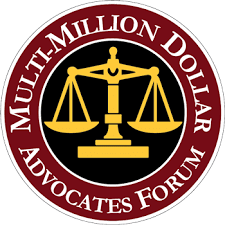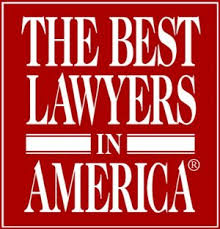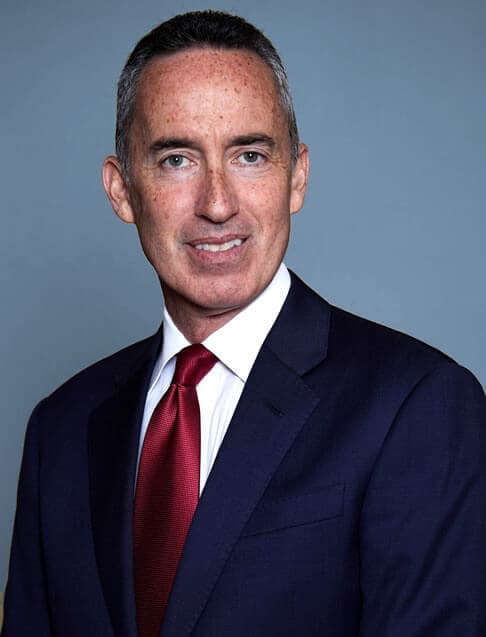The trauma of abuse, especially when it occurs in childhood, can shape your entire life. New Yorkers who have suffered at the hands of abusers or institutions find themselves living with pain and questions that demand justice.
The Child Victims Act attorney plays an important role in empowering survivors to seek long-overdue legal recognition and accountability. If you or someone you love is considering legal action under the Child Victims Act, knowing what this law entails and how it works in New York can help you take the first step toward justice and healing.
Schedule a Free Case Evaluation
Table of Contents
- What is the Child Victims Act?
- Who Can File Under the Child Victims Act?
- Examples of Cases Under the CVA
- Recognizing the Emotional Toll of Taking Action
- What to Do While Healing from Child Victims Act Cases
- Compensation Survivors May Recover
- Why Pursue Action Under the Child Victims Act?
- Why Choose Queller Fisher as Your Powerful Legal Advocate?
- Child Victims Act Attorney FAQ
- Call for Help Today
What is the Child Victims Act?

The Child Victims Act (CVA), passed into law in New York, provides an opportunity for survivors of childhood abuse to file lawsuits against abusers and institutions that failed to protect them.
Before the CVA, restrictive statutes of limitations often prevented victims from holding perpetrators accountable. This law extended the time frame to file civil lawsuits and allowed a one-year “look-back window” where survivors could file claims regardless of when the abuse occurred.
The law recognizes that trauma frequently delays reporting and aligns with survivors' lived experiences. While the look-back window initially ended, continuing legal efforts and amendments may have lasting effects; these carve out pathways for those who believed their time to seek justice had passed.
Survivors stepping forward now do so for themselves and to help ensure no one else suffers the same silence they endured.
Who Can File Under the Child Victims Act?
Individuals eligible for a claim under the Child Victims Act must have experienced abuse as a minor. Survivors may bring claims against individuals responsible for the abuse as well as entities or institutions that facilitated it, such as:
- Schools or school districts
- Religious organizations
- Youth clubs or camp organizations
- Childcare facilities or foster care systems
- Sports or athletic programs
Institutions that allowed an unsafe environment or failed to act on reports can ultimately bear financial and legal responsibility for enabling the behavior to continue.
Examples of Cases Under the CVA
The circumstances surrounding childhood abuse are distressingly diverse. Common cases covered by the Child Victims Act involve:
- Abuse by religious clergy or church officials
- Misconduct by educators in public or private schools
- Exploitation by athletics coaches or program supervisors
- Negligence in foster care placements
- Predatory behavior by youth counselors or mentors in extracurricular activities
Every case is unique, but they all share one goal under the CVA framework: holding responsible parties accountable for failing to protect vulnerable children.
Survivors who have suffered in silence can find their voices under this legal platform.
Recognizing the Emotional Toll of Taking Action

Filing a claim of childhood abuse requires strength and courage. Alongside legal considerations, survivors may wrestle with emotional challenges tied to reliving difficult memories.
However, stepping forward often provides closure many survivors seek. It transforms anguish into action, illumining what occurred and shedding shame placed unfairly on victims.
Survivors who pursue justice under the CVA often feel empowered to take back control over their narratives and futures. Facing systems of carelessness or neglect no longer feels like an impossibility.
What to Do While Healing from Child Victims Act Cases
It’s important to prioritize your emotional and physical well-being while pursuing justice. Healing is an ongoing process, and formulating a supportive environment can make a significant difference during this time. Here are steps survivors and their families might consider:
- Seek Counseling or Support Groups
Reaching out for professional help is often a proactive step. Whether it’s through licensed mental health professionals or peer-led survivor groups, having a network to lean on plays a vital role in processing trauma. - Preserve Documents or Evidence
If physical evidence like photographs, written communications, or official reports exist, keep them safe to strengthen your case. Documentation can substantiate claims made under the CVA framework. - Speak with Trusted Loved Ones
Discussing your experiences with people you trust can alleviate emotional burden and assist you in shaping the story you wish to tell publicly or in court. - Maintain a Journal
Writing down your thoughts, memories, or the effects abuse has had on various aspects of your life allows for clarity when recounting events during legal proceedings. It also serves as a therapeutic outlet. - Begin the Legal Consultation Process
Engaging experienced legal guidance early helps clarify your rights and options under the CVA timeline. By starting this conversation without delay, you ensure timely filing before deadlines from statute limitations pass.
Compensation Survivors May Recover

Pursuing recourse under the CVA often includes financial compensation, which can help alleviate the burden the abuse placed on your current and future life.
Outcomes vary with each case, but potential recoverable damages may consist of:
- Therapy and Counseling Costs
Survivors often require long-term mental health support, which should not come out of their own pocket. - Medical and Rehabilitation Bills
Physical injury or ongoing medical care linked to the abuse can be factored into financial awards. - Loss of Income
If abuse has affected your ability to work or hold employment long-term, these losses may also be addressed. - Pain and Suffering
Non-economic damages account for emotional distress, personal anguish, and loss of quality of life inflicted by childhood abuse. - Punitive Damages
When institutions have shown gross negligence or blatant misconduct in handling abuse allegations, courts may impose punitive damages in their judgments.
Why Pursue Action Under the Child Victims Act?
Every victim of childhood abuse deserves an advocate who can voice what they endured with fearlessness.
Filing a claim under the Child Victims Act accomplishes two important objectives:
- Accountability Forces Change
Challenging power structures that allowed abuse to occur can drive institutions toward stricter policies, enhanced safety measures, and greater accountability moving forward. - Empowerment for Survivors
Fighting against systemic wrongs transforms a narrative long silenced. The courts provide a platform to tell your story, ensuring your truth is heard and validated.
While nothing erases the pain caused by abuse, justice can feel like reclaiming what was unjustly taken.
Why Choose Queller Fisher as Your Powerful Legal Advocate?

When facing the complexities of New York’s Child Victims Act, working with an experienced team can make a significant difference. A Child Victims Act attorney can bring the focus and strength required to ensure your voice is fully heard.
Here’s what sets our team apart:
- Compassion When It Matters Most
We understand the deep emotional challenges survivors face when revisiting painful memories. Throughout the legal process, we serve as a pillar of support, offering guidance motivated by care. - Strong Track Record in Legal Victories
With years devoted to holding institutional negligence accountable, our proven ability to secure settlements and courtroom decisions in similar cases makes us capable allies for survivors. - Resources Dedicated to Thorough Representation
Complex cases demand deep research, investigations, and expert testimonies (if required). Our commitment comes with a challenge to do everything in our power to build the strongest possible case.
Every survivor stands as a testament to resilience. You don’t have to face the systems that failed you alone—we’re here to help ensure your voice cuts through.
Child Victims Act Attorney FAQ
1. Can I file a claim under the Child Victims Act anonymously?
Yes, courts in New York often allow survivors to file claims under the Child Victims Act anonymously to protect their privacy.
This means your name can remain confidential, and steps will be taken to safeguard your identity throughout the legal process.
2. What if the abuser or institution responsible is no longer operating?
Even if an institution has closed or an individual abuser has passed away, you may still be able to file a claim.
Legal teams can investigate the circumstances to identify liquidated assets, successor organizations, or other avenues for accountability and compensation.
3. Is there a time limit to file a new Child Victims Act case in New York?
While the original look-back window under the Child Victims Act has closed, additional legislation or legal extensions may provide new opportunities for survivors.
Stay informed about recent legal updates, as exceptions or changes to the statute of limitations could apply to your case.
4. Can filing a claim help prevent future abuse?
Yes, bringing attention to abuse through legal action often forces institutions to adopt better policies, implement more oversight, and create safeguards for the future.
Your case can help make organizations accountable and prevent others from experiencing similar harm.
5. What happens if the abuse occurred outside of New York?
The Child Victims Act specifically applies to abuse that took place in New York.
However, if the abuse occurred in another state, you may still be able to pursue legal action under that state’s laws. It’s important to consult an attorney familiar with jurisdictional differences to understand your options.
6. Will I have to testify in court if I file a claim?
Not necessarily. Many cases filed under the Child Victims Act are resolved through settlements without requiring a courtroom trial. If your case does go to trial, your legal advocate will prepare and support you throughout the process, ensuring your voice is heard with as little distress as possible.
7. Can I file a claim if I’ve already received a settlement or compensation in the past?
It may depend on the terms of your prior settlement or legal agreement. If new evidence has emerged or if the settlement did not fully cover your damages, you could have grounds to pursue additional legal action. Consult an attorney to review your specific circumstances.
8. What happens if my abuser denies the allegations?
If your abuser denies the claims, the burden of proof lies in presenting evidence to support your case. Evidence like documentation, witness testimonies, or patterns of behavior can play a critical role.
Your legal team will help collect and strengthen the evidence needed to support your allegations and counter any defenses raised.
9. Can filing a claim under the Child Victims Act affect my family relationships?
Filing a claim can sometimes lead to tension or complications within families, especially if the abuser is a family member or someone close to loved ones. Open conversations with a counselor or support group can help you process and prepare for such impacts.
Your attorney guides you discreetly, respecting your boundaries at each step.
10. Are there resources for emotional support during the legal process?
Yes, numerous resources are available to provide emotional support during this time. You can connect with mental health professionals, survivor advocacy groups, or peer forums.
Organizations like the New York State Office of Victim Services offer guidance and support specific to survivors navigating the legal process. Your attorney may also recommend services to help you through this challenging period.
This FAQ provides additional insight into common concerns for survivors of childhood abuse considering action under the Child Victims Act. For further assistance, reach out to the appropriate legal guidance.
Call for Help Today

If you or someone you know is ready to take action under New York’s Child Victims Act, reaching out is the first step to regaining power and accountability over years of silence.
Talk confidentially with allies who genuinely care about securing justice for victims. Your courage to speak matters, and we’ll walk that path with you. Call us at (212) 406-1700 today to schedule a no-cost consultation. Together, we’ll find the answers you’ve been seeking.
Queller, Fisher, Washor, Fuchs & Kool - New York Office
233 Broadway #1800,
New York, NY 10279
Ph: (212) 406-1700